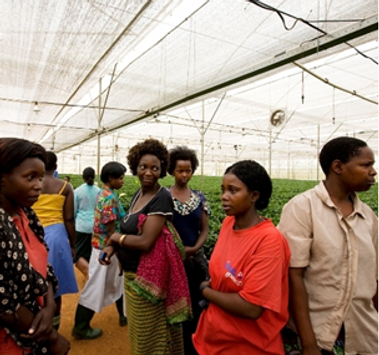
Projects
Promoting Women Workers’ Rights in African Horticulture
This was a three-year study (2005-2008) investigating the situation of women workers in the African horticulture sector.
WWW worked with four project partners:
-
Kenya Women Workers Organisation (KEWWO)
-
Tanzania Plantation and Agricultural Workers Union (TPAWU)
-
Uganda Workers Education Association (UWEA)
-
Workers Education Association of Zambia (WEAZ)

“For me the training has been most useful, to understand what our rights are, to realise we are not alone and to know that we should be demanding better working conditions”
Mary, Tanzanian flower worker
The project documented working conditions on the flower and vegetable farms, identified the companies operating in the global supply chains, and documented the workers’ rights embodied in both company codes and in national law and identified the educational needs of the workers.
The research identified issues around:
-
women in low-paid jobs and lack of access to training
-
too many casual worker contracts
-
low salary levels
-
lack of opportunities for promotion
-
blocking of unions
-
permanent workers not receiving agreed benefits
-
long working hours
-
health and safety contraventions
-
widespread sexual harassment.

Project funded by

Almost 1,000 people from 46 farms participated in the research and the research findings have helped to shape the future work of WWW (such as our Strategies for Change project, our partners and companies, unions and NGOs operating in the wider global supply chains.
